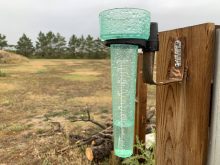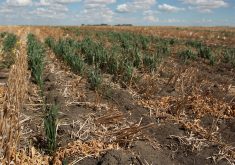REGINA — The Alberta government has highlighted investments in water research and technology as the province faces its worst drought since 2001.
At a March 25 news conference at the University of Alberta, technology and innovation minister Nate Glubish said the upcoming year is going to be dry and the worst drought the province has seen since 2001.
“We all know that we’re facing risks of drought across the province. And so it is so important for us to be making investments into new technologies and into research that will help us to do even more when it comes to conservation of our water, when it comes to the protection of our water, when it comes to the cleaning and remediation of waste water,” he said.
Read Also

Trump’s tariffs take their toll on U.S. producers
U.S. farmers say Trump’s tariffs have been devastating for growers in that country.
He and environment minister Rebecca Schultz said investments totalling $75 million over the last nine years were designed to maximize Alberta’s water supply and be able to fight drought.
For example, a granular sludge reactor currently being piloted at a Calgary waste-water treatment plant is designed to increase the amount of processed water that can be reused and recycled.
Schulz said that’s important because it means more efficient water use so that both communities and industries can grow. Granular sludge reactors can reduce emissions and keep more fresh water available for communities.
“Granular sludge reactors are about 10 times more efficient than any other waste-water treatment technology on the market today and it can also reduce emissions by up to 15 percent reduction in some applications,” she said.
Discussions on the largest water sharing agreements in the province’s history are underway and conservation plans are being put in place.
This is all part of the Water Innovation Program through Alberta Innovates.
Contact karen.briere@producer.com
















